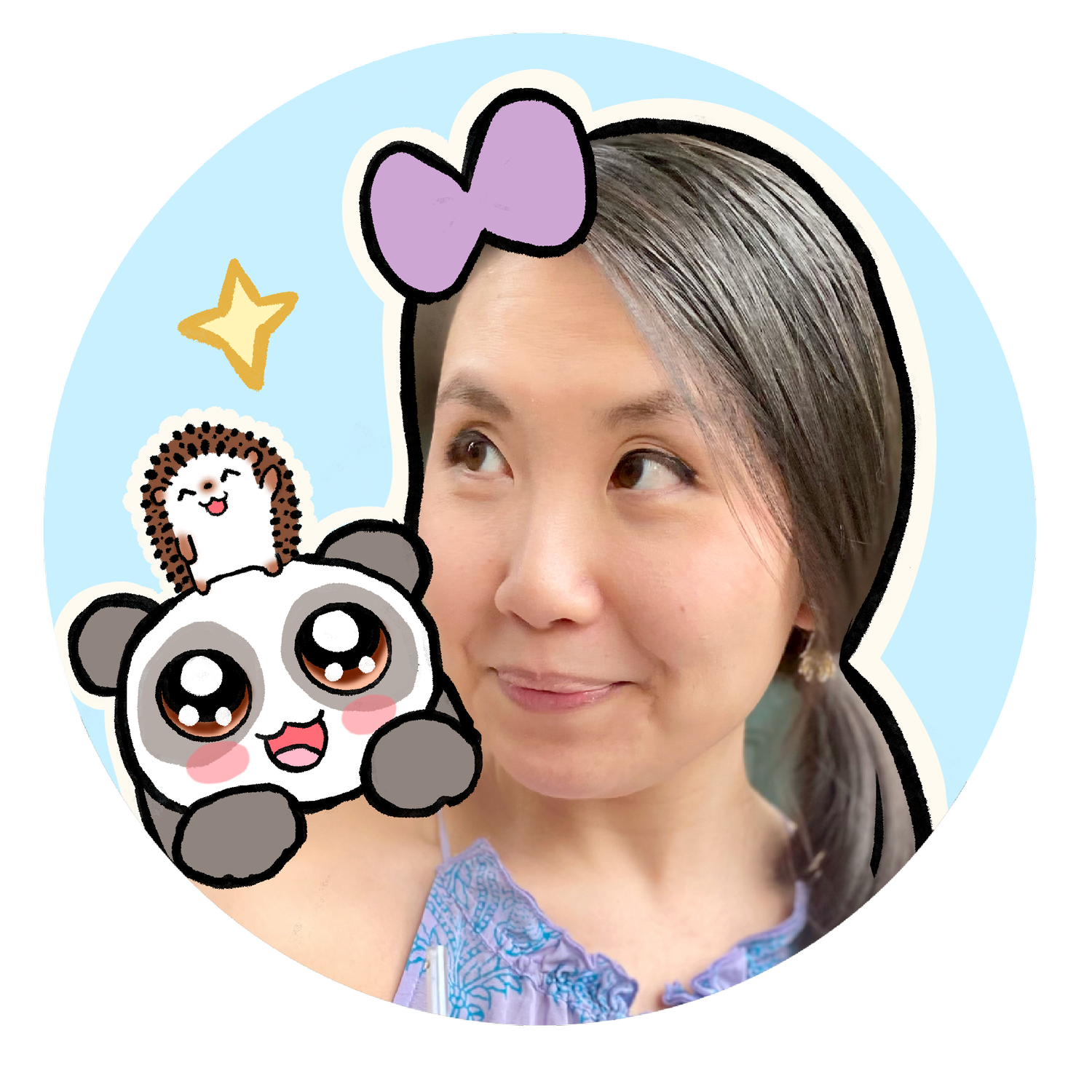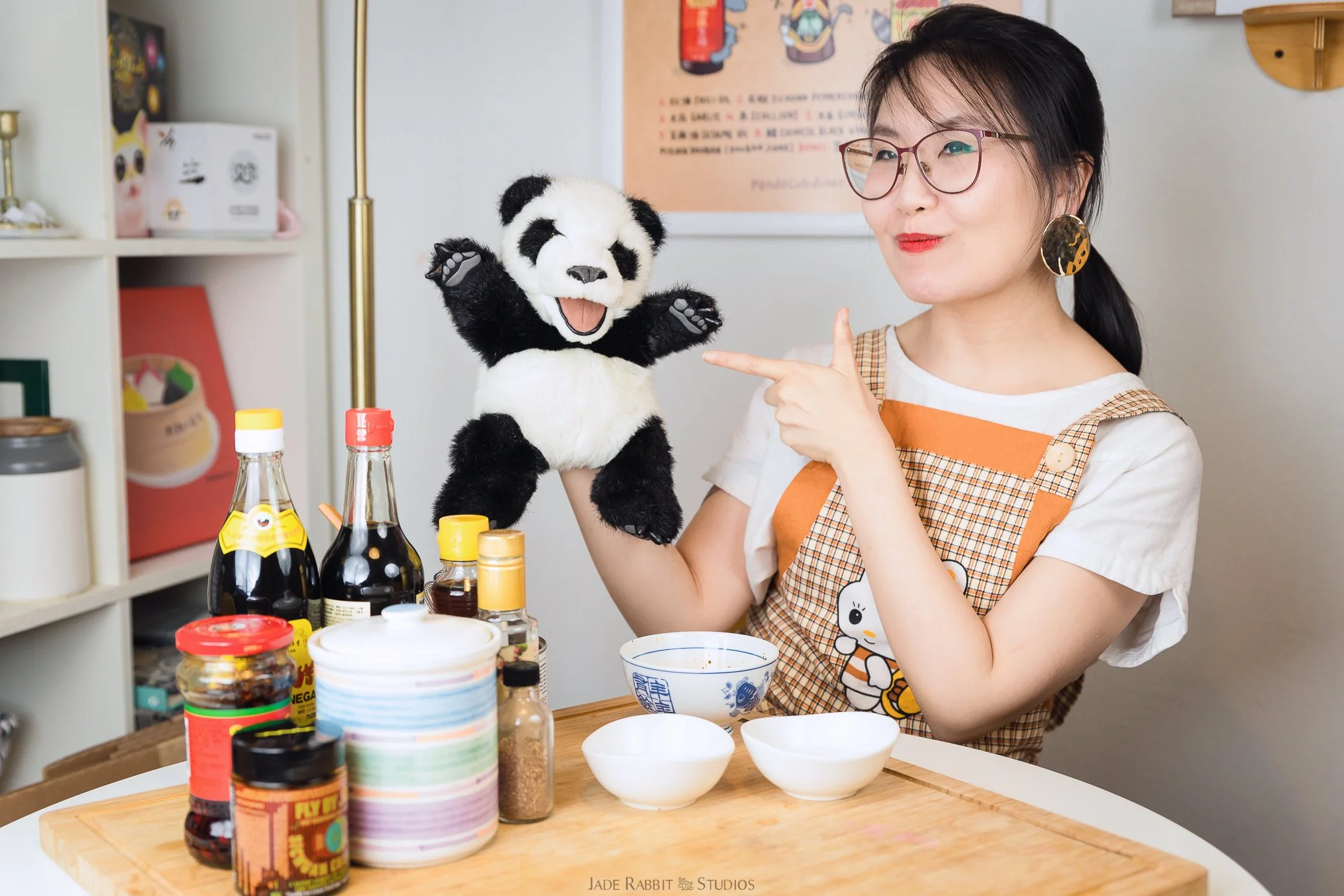Hi! I’m Linda.
I’m the creator of the Panda Cub Stories webcomic, and the founder of Panda Cub Diner - my Sichuan cooking membership where I teach students the joys of cooking healthy and authentic Sichuan-style Chinese food, with a generous helping of art, storytelling, and giggles.
I was recently asked me about the "inspiration" behind Panda Cub Stories and Panda Cub Diner during an interview.
And, as always, I launched into a meandering, stream of consciousness tale that started from birth (ha) allll the way to now. Thankfully, my interviewer skillfully distilled my story into the following feature article, which I’m sharing below. I hope you love reading my story as much as I loved (and am loving!) living it:
(The below is from my 2022 Alumni Spotlight interview with the Watson Brown Foundation)
Some might think the South invented comfort food: bubbling mac ‘n’ cheese served at supper, covered casseroles at a potluck, flakey buttermilk biscuits baked in a cast-iron skillet, layered banana pudding, and sweet potato pie. After all, hospitality comes naturally in small towns where neighbors smile at each other when they pass and fences lines are a formality.
At its core, food is simply a shared sense of belonging.
When we eat together, we are fed in more ways than one. Food nourishes — it also knows. Every bite creates or recalls a sense of place. And no matter where we are, taste can take us home. For Linda Yi, “home” means a lot of things. She was born in the Sichuan, China in Chengdu, a city that counts Giant Pandas as its most famous residents. Her family immigrated to the States when she was four and spent some time in Maryland before moving to Georgia summer of seventh grade. She attended Duke University and majored in art. She earned her master’s degree from the University of Cambridge, studying critical approaches to children’s literature, and eventually moved to New York City, working as a freelance artist and creator of her own webcomic series, Panda Cub Stories.
In 2020 at the onset of the pandemic, Linda was in lockdown alone in her Manhattan apartment. “I was homesick,” she remembered, “and I had a lot of time on my hands.” On a logical level, she knew comfort food couldn’t simmer the brewing uncertainty of COVID and anti-Asian sentiment surrounding her. The world was flipped upside down. She longed to connect with the familiar and the foods she craved. Phone conversations back home to her parents turned to how to season a wok, toast Sichuan peppercorns for a batch of chili oil, and smack cucumbers (it involves the side of a cleaver). Linda started cooking and realized that she could expand Panda Cub Stories to share her newfound culinary know-how. Fast-forward to the present and her simple desire to prepare the comfort food she missed most has become a blossoming business, Panda Cub Diner.
Starting From Scratch
There are a few things that differentiate Panda Cub Diner from other online culinary classes. If it was a recipe, it would be one-part Sichuanese cooking course and one-part cognitive theory technique, all garnished with Linda’s illustrations.
The dash of what she calls “neurodiverent cooking strategies” stem from her own experiences in the kitchen. Linda was diagnosed with ADHD as an adult and says it’s part of the reason she only recently warmed to cooking. “I struggled with planning ahead, and it was overwhelming to go to the grocery store and cook the same night,” she said, recounting some of her previous struggles. In her course and ebook, she helps her students learn to “chunk” tasks. She also reframes the setting — “the kitchen is bright and happy” and a place to reconnect with family and your community. Cooking is something to look forward to, rather than a chore.
“There’s some scaffolding needed, and once you start, you’re excited!” she stated. This idea also plugs into the simplicity of her recipes and approach. Mastering how to make a batch of chili oil instantly expands your repertoire and before you know it, you’re saucing dishes like steamed eggplant, dumplings, and cucumber. When it comes to equipment, “you could start with a typically stocked Western kitchen,” Linda said. But she also instructs that owning a few key pieces like a rice cooker, bamboo steamer, and wok brush will make the recipes even easier. Based on the interest so far — hundreds have taken her course — there’s clearly an appetite for her approach.
Taste of Success
Linda balances her time in the kitchen with her webcomic series on Instagram, Panda Cub Stories. Her readership (currently at 13,600 followers and counting) has evolved over time. “Whoever finds it is who it’s meant for,” she said. “It’s who I am and what I’m trying to be, a metanarrative of what I’m doing that I primarily use to better understand myself.” There’s a panda (a more impulsive, scatterbrained version of Linda), a hedgehog, and two cats, who not-so-coincidentally resemble her own. Her boyfriend even makes an appearance as a raccoon. “He identifies as a trash panda,” she joked. Social media influencer. Food entrepreneur. There’s a “secret sauce” to the life Linda has created: hard work. She spends six to seven hours a day either online managing her Instagram account and cooking business or in the studio on color and line work. That’s followed by a run in the park and dinner break then two “bonus hours” at night, leveling up in some way. “I used to use that time building my new business. Now I may take a skill-share class on animation or photography,” she said. It wasn’t that long ago that she was hungry for home. Since then, she’s not only learned to cook for herself but showed others how to do the same. Looking back, she reflected that the outline — or recipe — for her trajectory was there all along.
To follow Linda and start exploring Sichuan cooking today: @pandacubstories
Free masterclass: pandacubdiner.com


